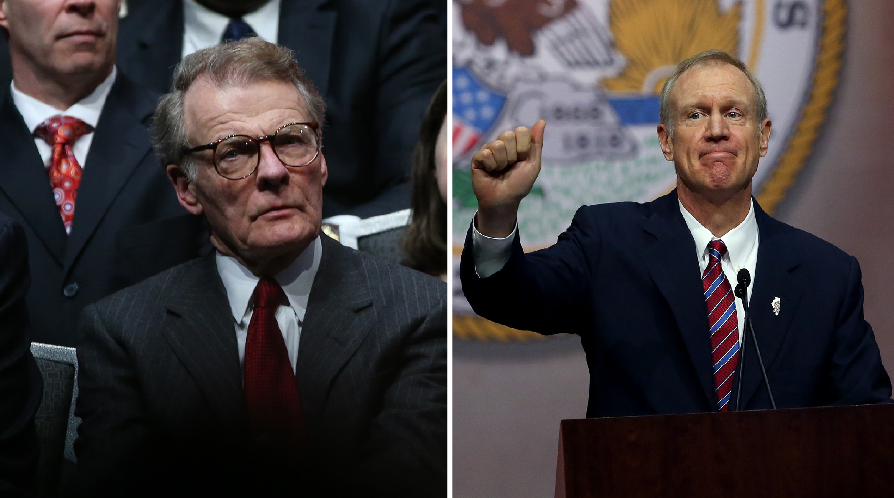Lawmakers return to Capitol as budget impasse drags on
April 3, 2016
The Illinois Capitol has been quiet for the past couple weeks during the General Assembly’s spring recess, but the volume — and the pressure — will be turned up this week when lawmakers return to face the state’s intractable budget impasse.
Time may be running out for the Democratic-controlled House and Senate and Republican Gov. Bruce Rauner to end the standoff, now in its 10th month, before it claims its highest-profile victim to date. Chicago State University officials have said the predominantly black South Side school only has enough money to make payroll through the end of April.
Like every other public university and community college across Illinois, Chicago State hasn’t received any state funding for the fiscal year that began July 1. Eastern Illinois University has laid off hundreds of employees, and faculty members have agreed to forgo a portion of their paychecks. Officials at Southern Illinois and Western Illinois universities also have announced significant cuts, resulting from the lack of support this year, and potential cuts next year.
Advertisement
Social service programs that, like higher education, aren’t covered by the court mandates or state statues that have kept money flowing to most areas of the budget are similarly strained.
Despite the deepening crisis, there have been no public signs that Democratic leaders and Rauner are any closer to reaching a deal. The House and Senate both passed a budget bill before the break, but Rauner has indicated he won’t sign either one.
Last week, the governor called the situation at Chicago State “an outrage.”
“I believe that the supermajority in the Legislature is using Chicago State and many other service providers in Illinois as leverage to try to force a massive tax hike,” he said.
As they have all along, Democrats countered that Rauner is responsible for the stalemate because he vetoed all but the elementary and secondary education portion of this year’s budget.
John Patterson, a spokesman for Senate President John Cullerton, D-Chicago, noted it was Rauner who last year spoke of using a crisis as leverage.
“Crisis creates opportunity. Crisis creates leverage to change … and we’ve got to use that leverage of the crisis to force structural change,” Rauner told the Chicago Tribune editorial board in April 2015.
Advertisement*
The structural changes Rauner is pushing for remain the sticking point for Democrats, who say the governor has held up a budget deal by tying it to issues that aren’t related.
But Rauner argues he’s shown a willingness to compromise, paring down his original list of 44 agenda items to just six: changes to how legislative districts are drawn; term limits for lawmakers; workers’ compensation reform; new restrictions on civil lawsuits; a property tax freeze; and giving local governments control over what subjects are included in contract negotiations with workers.
“I’m willing to take a lot less than six,” he added last week.
Rauner also said his request for a one-on-one meeting with House Speaker Michael Madigan, D-Chicago, has gone unanswered. Madigan spokesman Steve Brown said Rauner has mischaracterized the interaction, which actually involved an offer for staffers to meet to discuss whether the governor and the speaker should meet.
Sen. Dave Luechtefeld, R-Okawville, said lawmakers’ return to Springfield should increase the pressure on leaders to get together, adding he thinks Madigan hasn’t felt the need to compromise because the speaker believes he’s “winning the PR battle.”
Rep. Dan Brady, R-Bloomington, said ending the impasse is “going to take continued pressure from rank-and-file legislators to the governor, to the speaker and the other leaders.”
“There is so much depending on us bringing this to a resolution,” he said, adding just because lawmakers haven’t been in Springfield doesn’t mean they haven’t been working behind the scenes.
For example, Brady, who serves on two House higher education committees, said he’s been working with Rep. Kelly Burke, D-Evergreen Park, on a compromise to fund higher education.
“Rank and file continue to push, and they’re going to have to push harder,” he said.
___
(c)2016 The Pantagraph (Bloomington, Ill.)
Visit The Pantagraph (Bloomington, Ill.) at www.pantagraph.com
Distributed by Tribune Content Agency, LLC.
Advertisement









